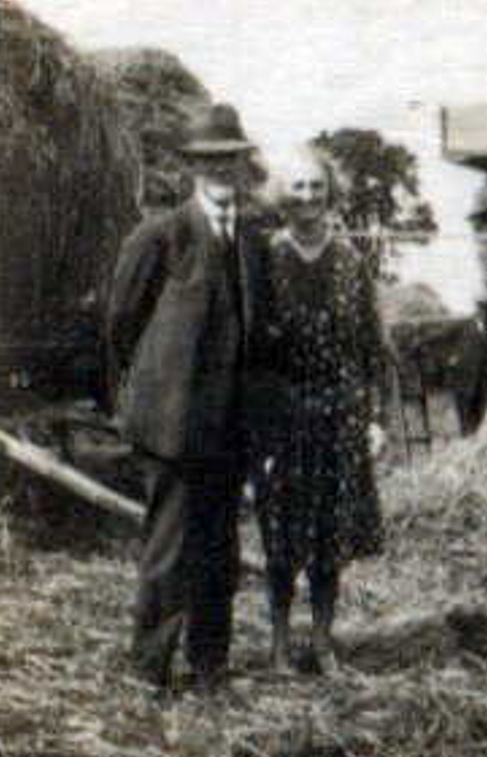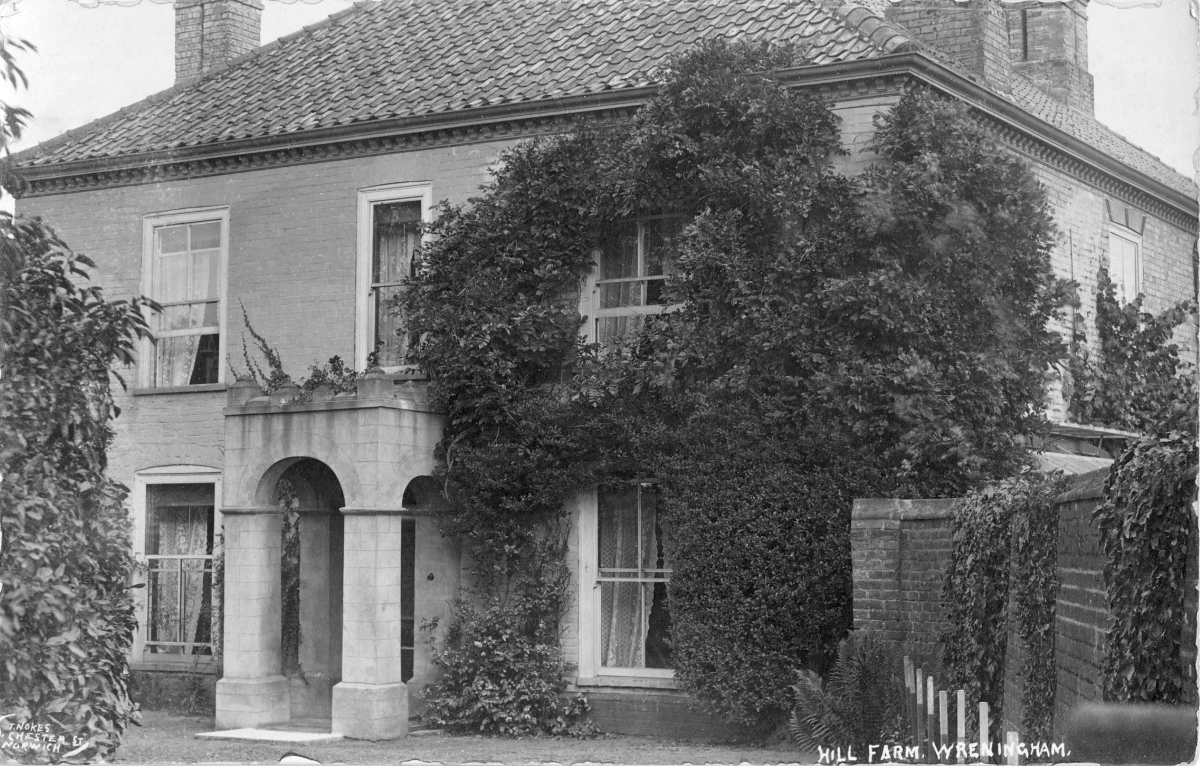
Whilst being tenants at “Burtons Farm”, in Ashwellthorpe Road, the Burton family were acquiring their own village land. By the time of the younger William Burton’s death, in 1857, they owned Hill House Farm on the Turnpike. We are presuming they operated the two farms in tandem due to the planting book (see below) which list both farms in the same notebook.
Resident at the main house was Barbara Denny – who was John Bullimore’s widowed aunt. He was named as executor in her Will.
After Maria Burton gifted Hill House Farm to John Bullimore. on her death in 1870, his position changed from managing the farm to owning it. Barbara Denny had also benefited from Maria Burton’s Will: £200 and and a silver teapot!
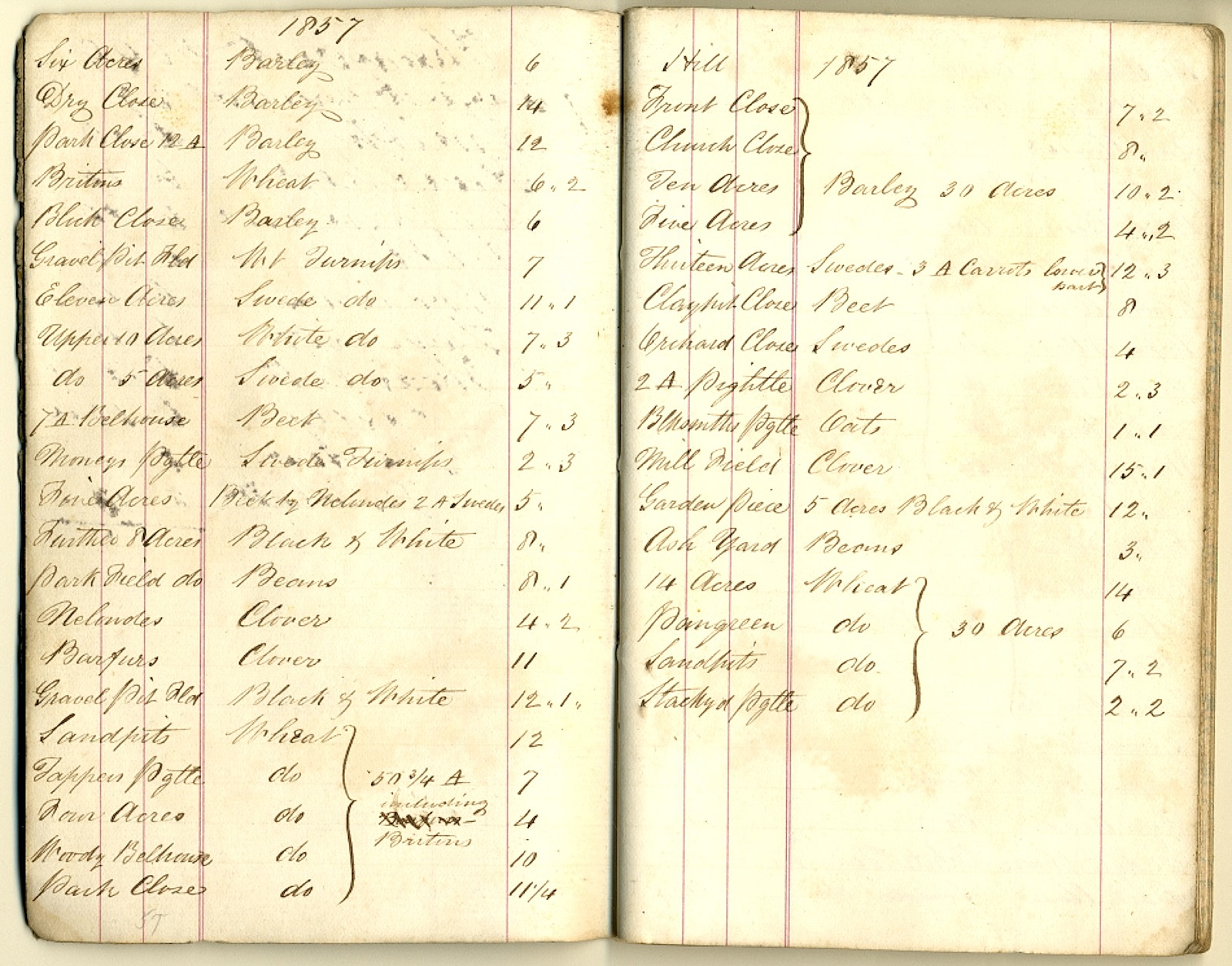
These annual listings for farm planting continue until 1883.
During his time at the farm, whilst being the owner, it is understood John Bullimore gave opportunities and guidance to others in their early careers.
Standing next to him, here, is believed to be James Day (son of George and Hannah Day) who, at some point, was the “Farm Servant”.
This photograph, taken outside the front door of the farmhouse, would be from the late 1800s.
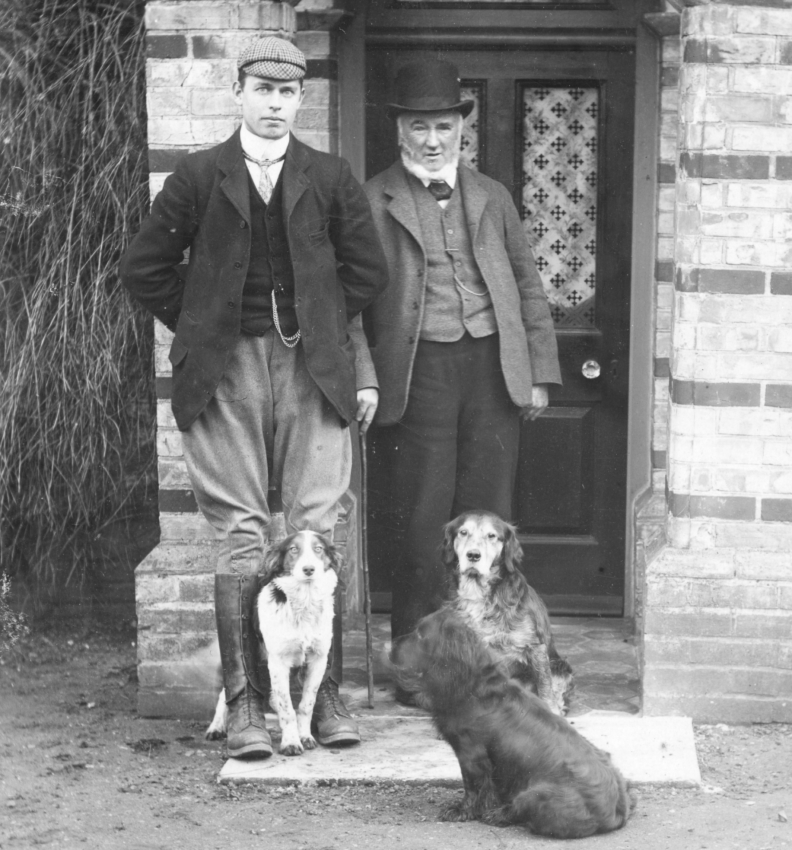
John Bullimore’s 1897 auction of farm animals and equipment appears to have resulted is his stepping back from active farming.
Starting in 1902, an unknown hand (possibly new tenant George Multimer) took John Bullimore’s farm notebook, turned it over and started writing on the many remaining blank pages from the opposite end. In this case, the notebook was being used for recording farm-workers pay. The notebook records the farm-workers being paid once every two weeks – and typically putting in an average of five to six days per week.
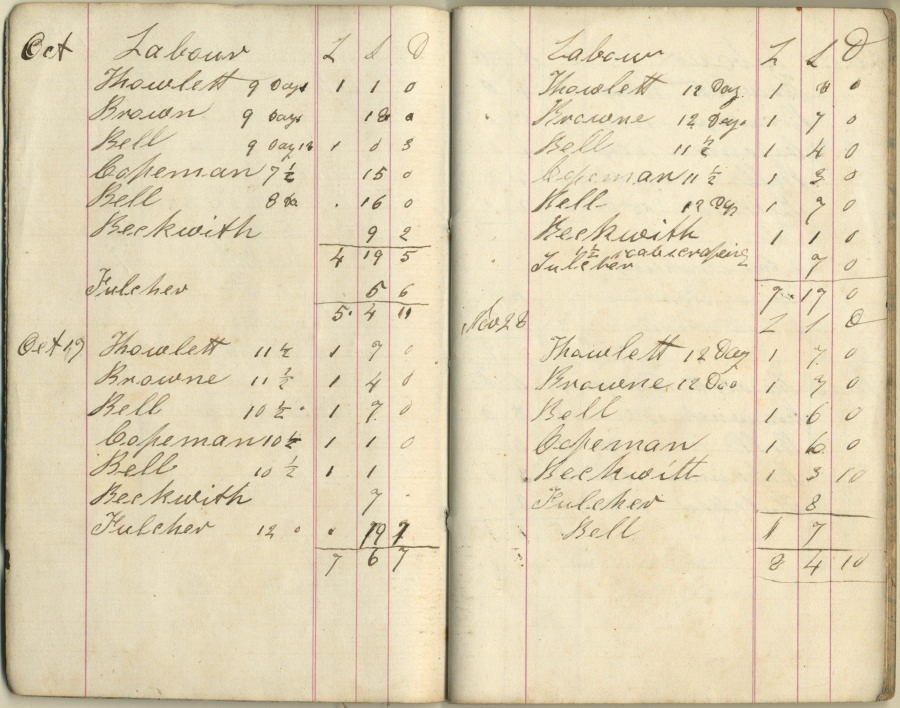
The Census for 1901 lists 22 year old George Carpenter Multimer born in Swainsthorpe as the “farmer” at Hill House – so we presume he was the new tenant.
This seems a remarkably young age to have this role and responsibility. We might suppose it was with the active support and encouragement of owner John Bullimore. At about the same time, there are numerous receipts for repair and improvement works to the farm – all paid for by John Bullimore.
Within a short period, George married Marion Louise Betts. They had a family and appear to have moved off to Tibenham.
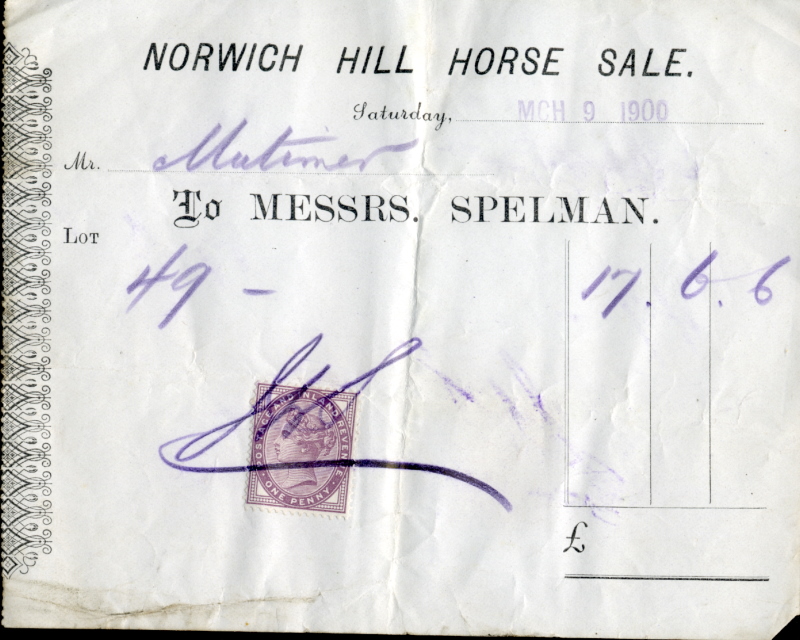
By 1907 we note (from information in a legal document following John Bullimore’s death) the tenant had changed to Arthur Morse. Arthur was a leading light in the relatively new Methodist Chapel and Hill Farm became the convenient venue (sometimes under canvas) for their larger church gatherings.
Arthur Morse had a family friendship with the Folwell family who were pork butchers in Leicester. We presume the railway enabled the farm’s pigs to be transported to Leicester, with ease. Eventually, young Horace Folwell decided to move to Wreningham and married Dorothy Bothway – one of William Bothway’s daughters.
Arthur Morse, who also appears to have bought land in Toprow, remained the Hill Farm tenant until about 1913. He was replaced by John Rowe who had arrived from the nearby Potash Farm at Hethel. John Rowe retired from farming in 1920 and moved to a house in Church Road.
